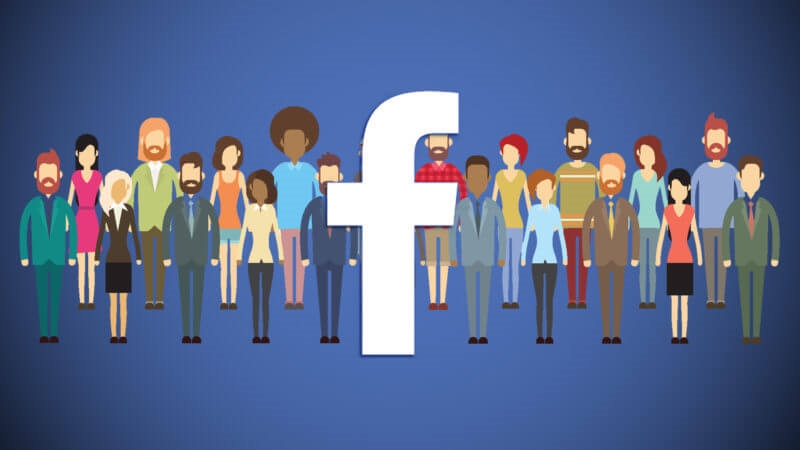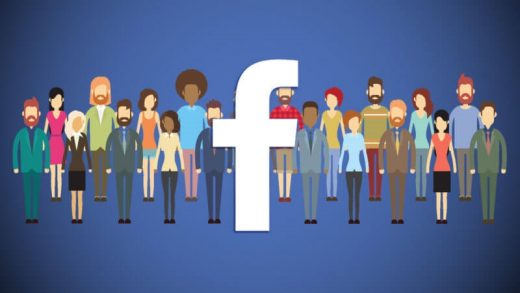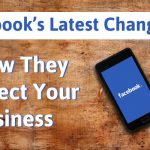Why top social media experts say Facebook’s News Feed change is no big deal
Worried about Facebook’s overhaul of its News Feed? Don’t hit the panic button just yet. Contributor Mark Traphagen explains why so many social media experts are remaining calm.

For nearly three days after Facebook announced perhaps its biggest change ever to its News Feed, I was glued to my social media feeds like a Wall Street broker watching the stock ticker. The responses I saw there fell into two consistent groups: page owners and publishers (PANIC!) and trusted social media experts/influencers/consultants (Stay Calm and Keep on Posting!).
Why are the experts not panicking? More on that below, but first let’s cover the broad picture of what the change is.
Facebook’s Mark Zuckerberg announced on January 11 that he was ordering a major change in “how we build Facebook.” Instead of focusing on surfacing “relevant content” for users, Facebook will now focus on “helping you have more meaningful social interactions.” Adam Mosseri, the head of News Feed for Facebook, explained that this means promoting posts that are more likely to create real conversations between real people.
Both Zuckerberg and Mosseri stated that one result of this change to the Facebook News Feed algorithm would be users seeing “less public content like posts from businesses, brands and media.” Why? Not because Facebook was now devaluing those sources per se, but because the vast majority of content from those sources creates very little “meaningful interaction” by users, the new holy grail of Facebook reach.
It’s easy to see why page owners (particularly “businesses, brands and media”) went into panic mode. It sounded like what little organic reach they still had to their fans was now going to become near zero.
So why are so many social media experts so calm about the announcement?
What the social experts are saying
Let’s take a look at what some of the social media marketing experts had to say about Facebook’s announced changes.
Mark Schaefer — “Don’t panic: The Facebook announcement is no big deal”
- Organic reach was already dead. It had been in decline for years, and prior to this update was at less than 1 percent for the average page.
- The winners will keep winning. Pages that have been able to generate massive engagement have always beat the stats quoted above, and they still will under the new change.
- Content that is not seen is worthless. It has been true on Facebook for a long time that content that doesn’t cause engagement won’t get seen. So this really isn’t new.
- Content has to matter to your audience. That also has always been true; Facebook is just forcing you to remember it.
Jay Baer — “9 Antidotes to the Facebook Algorithm Squeeze”
- This change should not come as a surprise. Facebook has been telegraphing it for a long time.
- Most business content on Facebook deserves to be hidden because it sucks.
- But Facebook is too big to ignore. Instead, create content that stimulates meaningful responses, encourage user- and employee-generated content, use live video, (and more suggestions you can see in his post).
Pam Moore — “Facebook Newsfeed Algorithm Changes 2018: What You Need to Know and Why You Should Ignore Fear Mongers”
- Facebook’s announced change lines up with what many social media experts have been telling you for years.
- Facebook is not a solution to your marketing woes; it is a tool to leverage like any other.
- Brands have to work harder at what they should have been doing on social media all along: being personal and engaging in ways that are meaningful and memorable to their audiences (not trying to game fake or worthless engagement).
Jon Loomer — “Facebook Marketers Are Already Fumbling News Feed Change”
- Marketers have only themselves to blame for the change. They seek to abuse and game any free opportunity, and they cry foul when the platform owner changes the rules to exclude their valueless ploys.
- The kind of content that Facebook will now devalue in the news feed never did businesses any good anyway.
- Facebook’s moves to protect the quality of their users’ experience should be what business owners want, too, and they should work in partnership with Facebook to satisfy this mutual goal.
- Stop whining and blaming Facebook, and get down to the hard work of good marketing.
The common message
Are you hearing some common themes in what these experienced social media marketing advisers are saying? Here’s what I hear:
- The Facebook algorithm change is not that big a change. Facebook has been working hard for a long time now to improve the News Feed experience for its users. Content and social media marketers shocked by this simply weren’t paying attention.
- Facebook is doing you a favor. The kinds of content this change will drive out of users’ News Feeds had little to no value to begin with, and not just to Facebook and its users. Content trying to game engagement or get attention simply to chase after an ever-dwindling piece of organic reach rarely had any connection to a business’s real goals — the reasons it was on Facebook in the first place: to create fans who would want to become customers.
- There are still opportunities to win organically on Facebook, but they will be harder to attain. But then, the best and most effective marketing always comes at the cost of real effort and creativity.
- Now more than ever, you must embrace the paid advertising side of Facebook. Don’t waste energy in anger at Facebook over their alleged plot to force you to spend more on paid promotion. The targeting and reach of Facebook advertising is a tremendous opportunity. Smart marketers will spend more time there and less on agonizing over organic reach.
- Diversify your marketing. If you were overly dependent on free reach to Facebook fans, you were dangerously out of balance way before this change. Seek out and develop all the useful channels for building and maintaining an audience, including email, SEO, PPC, video, podcasting and so on.
The most important message is this: Crying over what once was (or maybe what you imagined once was) is the most non-productive thing you can do. It won’t add a single customer to your business.
Never get dependent on anything “free” that is owned by someone else. Sure, make use of it while you can, and develop whatever opportunities it affords, but always treat it like it might disappear tomorrow — because sometimes it does.
Opinions expressed in this article are those of the guest author and not necessarily Marketing Land. Staff authors are listed here.
Marketing Land – Internet Marketing News, Strategies & Tips
(23)


















